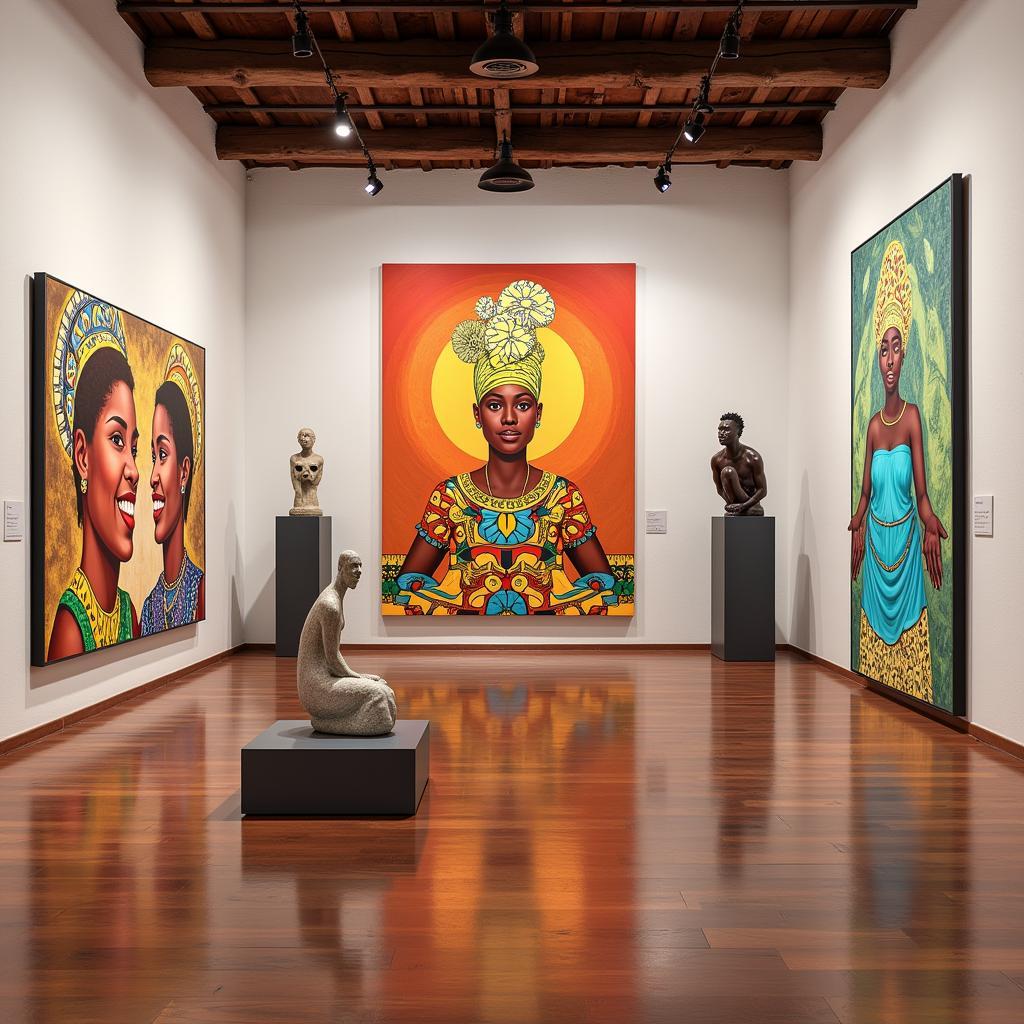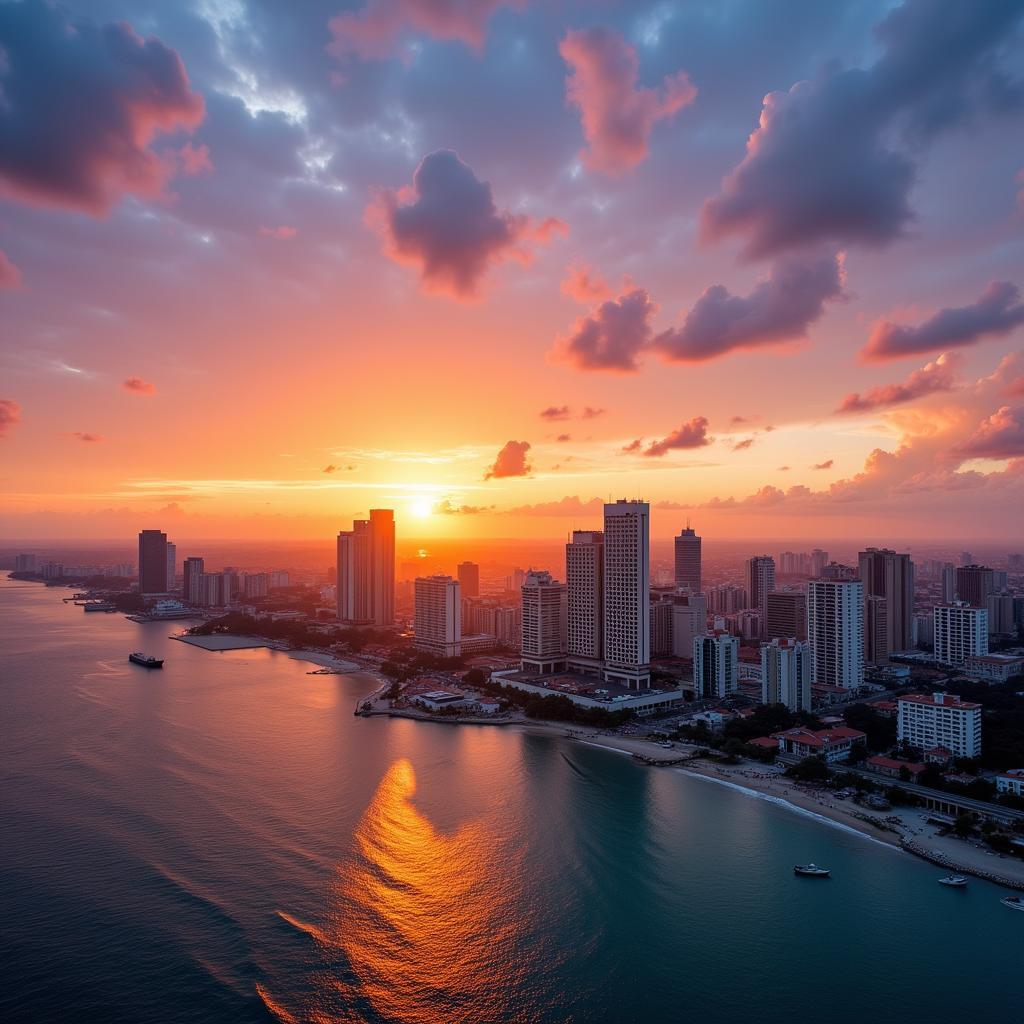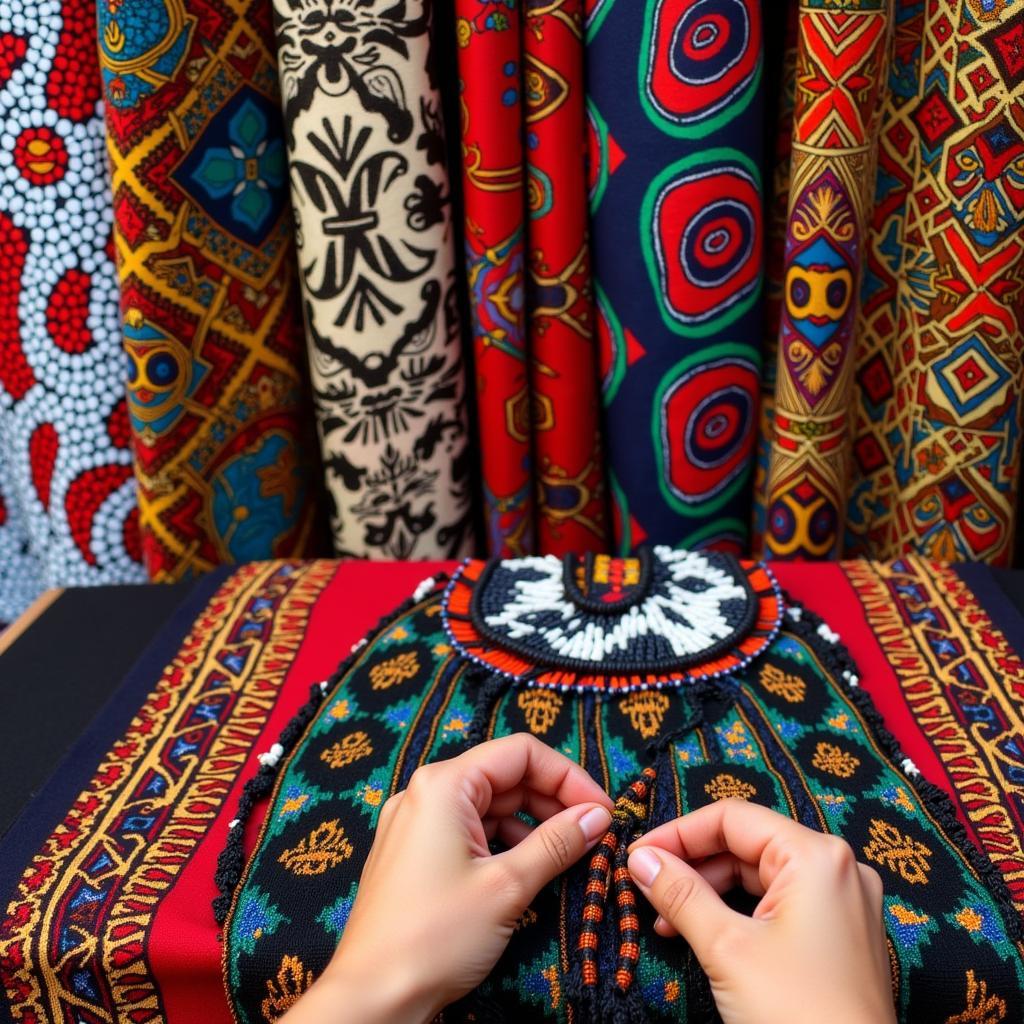Discovering Luanda: The Vibrant Capital of Angola
Luanda, the capital of Angola, is a vibrant city steeped in history and culture, overlooking the vast Atlantic Ocean. This captivating city is experiencing a period of exciting transformation, making it an intriguing destination for travelers seeking a unique African experience.
A City Shaped by History and Heritage
Luanda’s history is a rich tapestry woven with threads of indigenous cultures, Portuguese colonialism, and the struggle for independence. Founded in 1575 as São Paulo da Assunção de Loanda, it became a crucial port for the transatlantic slave trade, leaving an indelible mark on the city’s social fabric. The echoes of this era are visible in historical landmarks like the Fortaleza de São Miguel, a 16th-century fortress that now houses the National Museum of Military History, and the Fortaleza de São Pedro da Barra, a reminder of the city’s complex past.
A Cultural Tapestry Woven with Diverse Influences
Luanda’s cultural scene is as diverse as its history. The city pulsates with the rhythm of Kizomba, a sensual dance and music genre that originated in Angola. Traditional Angolan music, with its infectious beats and colorful instruments, reflects the country’s rich heritage. Explore the sounds of the marimba, the ngoma drums, and the soulful melodies of Angolan folk songs.
Art lovers will find solace in Luanda’s thriving art scene. The National Museum of Anthropology showcases the country’s diverse cultures through artifacts, masks, and traditional crafts. Contemporary art finds a home in galleries like the União Nacional dos Artistas Plásticos, showcasing the works of both established and emerging Angolan artists.
 Luanda Art Gallery Cultural Experience
Luanda Art Gallery Cultural Experience
A City Embracing Modernity and Progress
Today, Luanda is a city in transition, its skyline punctuated by modern skyscrapers alongside colonial-era buildings. The city is undergoing rapid development, with new infrastructure, hotels, and restaurants emerging to cater to a growing tourism industry. The Ilha do Cabo, a narrow peninsula across Luanda Bay, offers stunning beaches, upscale restaurants, and a vibrant nightlife, drawing locals and tourists alike.
Exploring Luanda: A Journey of Discovery
A journey through Luanda is a journey of discovery. From its historical landmarks to its lively markets, the city offers a blend of old and new, tradition and modernity.
What can you expect when you visit Luanda?
- Experience the warmth of Angolan hospitality: The people of Luanda are known for their warmth and hospitality, making visitors feel welcome in their city.
- Explore historical landmarks: Step back in time and delve into Luanda’s fascinating past by visiting its historical forts, museums, and colonial-era architecture.
- Immerse yourself in the culture: Experience the rhythm of Kizomba, witness traditional ceremonies, and explore the city’s art galleries and markets.
- Savor Angolan cuisine: Indulge in the flavors of Angolan cuisine, a delectable fusion of African, Portuguese, and Brazilian influences. Try traditional dishes like Muamba de Galinha (chicken stew with palm oil and okra) or Caldeirada de Cabrito (goat stew with vegetables).
 Luanda Beachfront Modern Cityscape
Luanda Beachfront Modern Cityscape
Frequently Asked Questions About Luanda:
1. What is the best time to visit Luanda?
The best time to visit Luanda is during the dry season, from May to October, when the weather is pleasant and ideal for sightseeing.
2. How can I get around Luanda?
Taxis are readily available in Luanda and are a convenient way to get around the city. Public transportation is also available, but it can be crowded.
3. What are some must-try dishes in Luanda?
Don’t leave Luanda without savoring traditional dishes like Muamba de Galinha, Caldeirada de Cabrito, and Funge (a cassava porridge often served with stews).
4. What languages are spoken in Luanda?
The official language of Angola is Portuguese, but several other languages are spoken, including Bantu languages like Kimbundu and Umbundu.
5. Is Luanda a safe city for tourists?
Like any major city, it’s essential to take precautions to ensure your safety in Luanda. Be aware of your surroundings and avoid displaying expensive jewelry or large amounts of cash.
Discover More About African Countries and Capitals:
Interested in exploring other fascinating destinations in Africa? Check out these resources:
Need More Information?
For further assistance planning your trip to Luanda, our team is here to help. Contact us at:
Phone: +255768904061
Email: [email protected]
Address: Mbarali DC Mawindi, Kangaga, Tanzania
We are available 24/7 to answer your questions and provide you with the information you need to make your journey to Luanda unforgettable.


